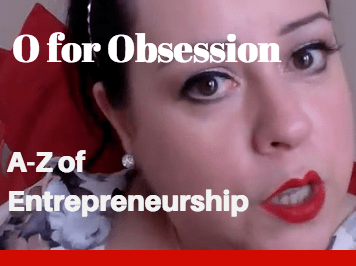
That’s what AVG has been thoroughly researching over two years with the help of thousands of parents, kids and young adults from 11 countries. Their research, AVG Digital Diaries, has been broken down into six stages:
Stage one – 0-2 year olds – Some children have an online presence before they are even born!
Stage two – 2-5 yea olds – More young children know how to play a computer game (58%) than swim (20%) or ride a bike (52%)
Stage three – 6-9 year olds – This addresses the need to keep kids safe online and make recommendations on how they can navigate the digital playground
Stage four – 10-13 year olds – Who is more digitally savvy at this stage, kids or parents? Are parents checking on their kids behaviour online? How to monitor and keep teenagers safe.
Stage 5 – 14-17 year olds – Out of 4,400 parents with 14-17 year olds in 11 countries it was found that only 30 per cent of UK parents are likely to be concerned about how their teen’s interaction with social media sites could affect their future job prospects
And last, but not least, Stage Six!
A couple of days ago I attended AVG’s briefing on this stage of their research about how young adults (18-25 year olds) are using social media. Some of the areas of discussion were based around social media can serve them well when it comes to managing their online profiles and future employment;it can show them in a positive light to prospective employers. And the reverse; how careless comments, photos or videos could have a potential employer throwing their CV in the bin.
This is an area of particular interest to me; earlier this year I spoke with Birmingham City University students about building and managing professional online profiles and it’s a subject I addressed in a guest lecture I gave to Social Media students.
Here are a few of the key points that I came away with after yesterday’s Stage Six launch and the discussion it generated.
- Whether we like it or not, with the birth of digital we are becoming our own personal brand by having an online presence. It is up to us to manage our profiles and take responsibility, whether that is publicly, or privately (behind privacy settings). Could having an online presence give some one a competitive advantage? Rightly or wrongly, yes it could.
- I’m quite interested in the moral, ethical, and indeed legal side of bosses, managers and recruiters googling job candidates. Even if the moral argument against checking out profiles wins, it’s human nature to want to find out more about someone you are about to work with. Wanting to research candidates is natural, and the finding are going to be influential. I suggested it might be a good idea for job descriptions to carry a disclaimer along the lines of ‘as part of this company’s recruitment process, your social media profiles will be researched’.
- One way to assist the person doing the hiring, and to perhaps deter them from googling a candidate too much, is to direct them to a personal website/blog.
- Authentic, careless or common sense? It was found that many people between the ages of 18-25 think that they shouldn’t have to modify behaviour online, and that it doesn’t matter and that no-one will care or even notice. They often underestimate the repercussions their comments/pics/videos could have. The reverse of that is if someone takes a bit of care with their profile it may not take very much for it to give them an advantage over jobs because 75% of recruiters said that they were influenced in a positive way about what they found out about a job candidate online. You don’t have to lose your personality online. As I have said before, be yourself, just be best self.
- Is the CV dead? If you listen to LinkedIn you would think it is becoming extinct. However, from the discussion with the panel and attendees it would appear that the CV is often the preferred way to received information from a job applicant. The trouble with LinkedIn as a CV, and the ‘one click’ to apply for a job via LinkedIn, is that most people don’t have their profiles 100% filled out, so their job application will show ‘gaps’. This is just going to waste everyone’s time and annoy potential employers. Secondly, it’s so easy (too easy) to apply for a job with a couple of clicks and the trouble is 100’s of other applicants are doing the same – how can you make yourself stand out when your application looks exactly the same as everyone else? Tip: Ditch the Facebook CV, that’s been done to death, but do have a think about the design and how you can make your CV stand out. Okay, you probably don’t need to go to those extremes, but it’s food for thought.
- It was a bit tongue-in-cheek when I suggested that parents might base their new baby’s name upon the domain name availability, but the more I think about it that might just be happening. 23% of children now have their pre-birth scans uploaded online. Parents could well be blogging on their (un-born) child’s behalf. And are the consequences of that in the future?
- Should schools, colleges and universities start educating young people about their digital footprint, and make them aware of how it could affect, both positively and potentially negatively, their future career choices? By raising awareness at an early age, and offering guidance, and some recommendations, schools can really support students as they enter the new work playing field. Can the students themselves start making great in-roads in to their dream careers by using the web as a place to launch from? I’d say YES, go for it!


